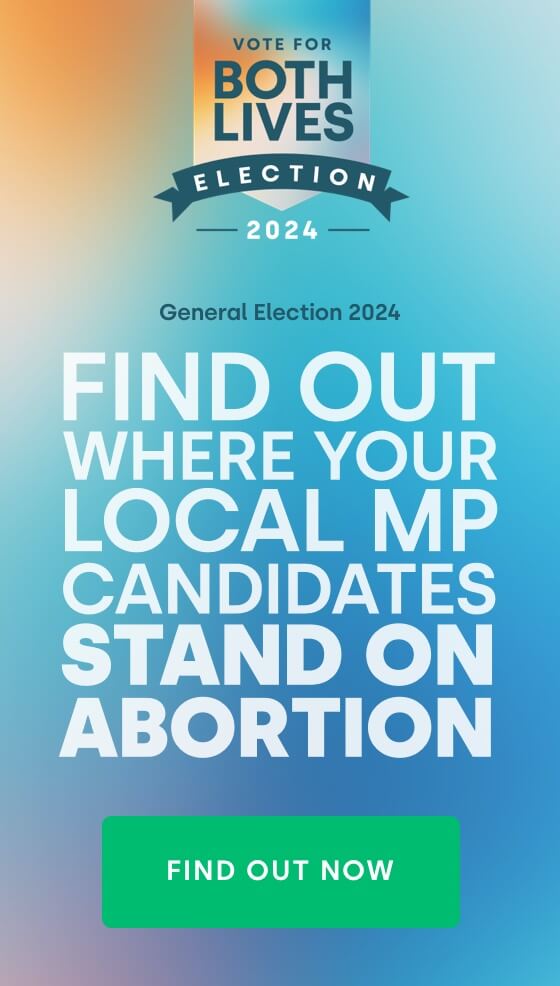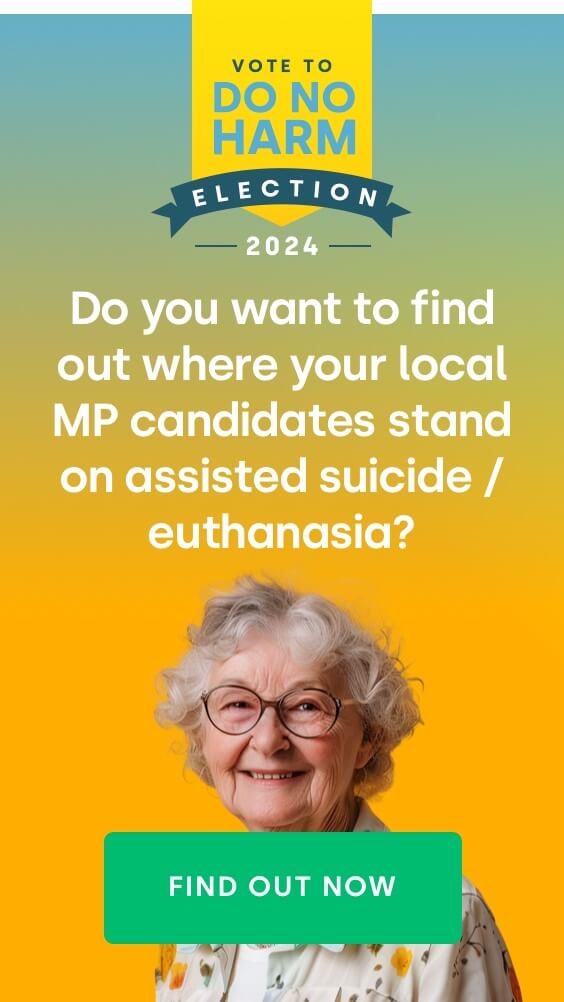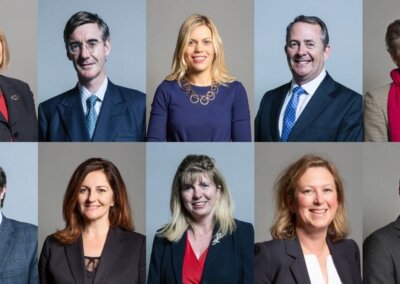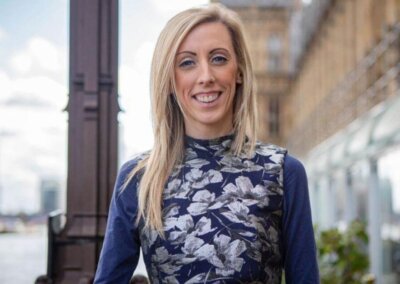With the General Election in less than a week, which major parties take a position on abortion and assisted suicide and what do they say about these issues?
Though not every major party has made a manifesto commitment to a particular position on abortion or assisted suicide, past manifestos and commitments, as well as their activity under the previous Parliament, provides an indication of the kind of beginning and end-of-life legislation these parties are likely to support.
Conservative Party
Abortion – While the Conservative Party has no explicit mention of abortion in its manifesto, the party manifesto does state that “We will expand our international campaigns on girls’ education, women’s rights and reproductive health”. Under the last Conservative Government, the Foreign, Commonwealth and Development Office (FCDO) were explicit that “[s]exual and reproductive health and rights” includes abortion.
The Conservative Government has a track record of providing funding for programmes that promote abortion overseas. Most recently in Tanzania, the Government announced it would be using £12 million of taxpayers’ money for a programme that will be implemented by an organisation that aims to “expand access” to abortion in the country over the next two years.
Last year, the Conservative Government launched an initiative “to tackle gender inequality around the world” with the use of over £200 million of taxpayers’ money for programmes that provide abortions and fund ‘pro-choice’ campaigns in Africa. The Women and Girls Strategy was set to provide up to £200 million of taxpayer money to be spent on the Women’s Integrated Sexual Health (WISH) programme.
The WISH programme is implemented by international abortion providers MSI Reproductive Choices (previously Marie Stopes International) and International Planned Parenthood Federation (IPPF).
A Government paper called ‘International Women and Girls Strategy 2023–2030‘ accompanying the launch of the initiative explains that one of its goals is to “prioritise the often-neglected issue of safe abortion”.
In 2019 the then Secretary of State for International Development, Alok Sharma MP, announced to the UN that the Department for International Development (DFID) would be providing an additional £600 million of taxpayer money for “family planning”, which included funding abortions.
Assisted suicide – The Conservative Party manifesto states: “We will maintain the position that assisted dying is a matter of conscience and will respect the will of Parliament. Debates on assisted dying should never distract from the importance of delivering high-quality palliative care services and we will continue to support children’s and adults’ hospices.”
Rishi Sunak has recently stated that he is “not against it [assisted suicide] in principle. It’s just a question of having the safeguards in place”. However, former Prime Minister Boris Johnson also initially indicated sympathy for a change in the law but voted against an attempt to change the law in 2015 and did not back the introduction of assisted suicide when the issue was raised in 2021 either.
Labour Party
Abortion – The Labour Party makes no explicit mention of abortion in its manifesto. Labour does say it “will prioritise women’s health as we reform the NHS”.
Scottish Labour is also somewhat unclear about its position on abortion in its manifesto stating it “believes all women must have access to the full range of reproductive services, irrespective of where they live”.
However, in a document released by their National Policy Forum last year, the party stated that it “believes that abortion is an essential part of health care which is highly regulated and should not be subjected to custodial sanctions. Labour will provide parliamentary time for free votes on modernising abortion law to ensure women do not go to jail for getting an abortion at a vulnerable time”.
If abortion was fully ‘decriminalised’, this would make abortion legal, on demand for any reason up to birth.
Labour MPs Diana Johnson and Stella Creasy have a track record of leading attempts to pass extreme abortion legislation, most recently through amendments to the Criminal Justice Bill earlier this year.
If they had passed, these amendments would have likely led to a significant increase in the number of women performing late-term abortions at home, endangering the lives of many more women.
They would have also likely led to an increased number of viable babies’ lives being ended well beyond the 24-week abortion time limit and beyond the point at which they would be able to survive outside the womb.
Compared with the Conservative MPs, a higher proportion of Labour MPs take a pro-abortion stance. The most recent substantial vote on abortion was during the debate on the Health and Care Bill 2022 (now the Health and Care Act 2022). On 30 March 2022, the House of Commons voted 215 to 188 in favour of “Amendment (a) proposed in lieu of Lords amendment 92”. This amendment made the pills-by-post at-home abortion scheme permanent in England and Wales. 125 Labour MPs voted in its favour and only 4 against, compared with 72 Conservative MPs who voted in its favour and 175 against.
The 2019 Labour Party manifesto was explicit about its intention to ‘decriminalise abortions’.
Assisted suicide – Though not in their manifesto, the leader of the Labour Party and possible future Prime Minister, Sir Keir Starmer, has not only voted in favour of making assisted suicide legal in the past, but also publicly stated his continued support for it and even pledged that he will make time for a vote on the matter should he become Prime Minister.
Liberal Democrats
Abortion – The Liberal Democrats’ manifesto pledges to “[p]rotect everyone’s right to make independent decisions over their reproductive health without interference by the state and ensure access to high-quality reproductive healthcare, including enforcing safe access zones around abortion clinics and hospitals”.
The commitment to enforce buffer zones comes in the wake of legislation, passed in March of last year, which makes it a criminal offence to “influence” any person seeking to access abortion services within 150m of an abortion clinic.
While, Section 9 of the Public Order Act 2023, passed in both Houses of Parliament earlier this year, creates an offence for a person to “influence”, “obstruct” or “cause harassment, alarm or distress” to someone seeking an abortion outside an abortion clinic, the law has yet to be brought into force.
Furthermore, if the reference to ‘reproductive health’ includes access to abortion (as the FCDO say it does), in order to realise their pledge “to make independent decisions over their reproductive health without interference by the state”, current abortion restrictions, such as the 24-week time limit or the grounds-based restrictions in current legislation, which the Government has said makes sex-selective abortion illegal, would need to be removed.
If these restrictions were removed, abortion would be available on demand, for any reason, up to birth.
Assisted suicide – The Liberal Democrats have pledged to “[g]ive Parliament time to fully debate and vote on legislation on assisted dying for terminally ill, mentally competent adults with strict safeguards, subject to a free vote”.
Reform UK
The Reform UK manifesto does not contain any commitments on abortion or assisted suicide. Leader of Reform UK, Nigel Farage, has consistently refused to take a side on life issues and his party appears to be doing the same.
In a discussion on the state of abortion law and the upcoming election in the United States, Nigel Farage said “I genuinely think this should be an issue of conscience”. He also referred to the pro-life position as a “minority view” and said that pro-life legislation in Arizona is a “major problem for Trump and his campaign”.
In 2019, as leader of the Brexit Party, of which he said Reform UK is a ‘direct descendent’, Farage said the party did not have a position on abortion and refused to condemn Ann Widdecombe for her pro-life views.
Reform UK does not have any official policies on abortion or assisted suicide. Such issues are traditionally considered ‘conscience’ issues on which MPs are typically given a ‘free vote’, rather than having to vote along political lines.
Green Party
Abortion – The Green Party does not mention abortion in its manifesto but its only MP in the previous Parliament, Caroline Lucas, who is not standing for re-election, consistently voted in favour of pro-abortion legislation, including imposing abortion on Northern Ireland and making at-home abortions permanently available in England.
Assisted suicide – The Green Party is committed to making assisted suicide legal. In its manifesto, it says that any elected MP “will support a change in the law to legalise assisted [suicide] for people suffering from terminal disease…”.
Workers Party of Britain
The Workers Party of Britain have not taken any stance on abortion or assisted suicide in its manifesto.
However, its leader, George Galloway, supported all three pro-life amendments to the Criminal Justice Bill earlier this year. He supported an amendment to reinstate in-person consultations ahead of an abortion, an amendment to lower the abortion time limit to 22 weeks and an amendment to lower the abortion limit for babies with Down’s syndrome.
Northern Ireland
The Democratic Unionist Party (DUP) – The DUP has described itself as “unashamedly pro-life”, said that it does not believe silent prayer should be criminalised and has stated its opposition to the legalisation of assisted suicide.
In its manifesto released ahead of the General Election next month, the DUP has said it is “unashamedly pro-life and continues to oppose the radical abortion laws foisted on communities in Northern Ireland”. Among its pro-life credentials, the manifesto boasts that DUP MPs have “opposed the commissioning of abortion services in Northern Ireland” in 2019 when English, Welsh and Scottish MPs in Westminster voted to impose an extreme abortion regime on Northern Ireland.
While MPs from most parties have some MPs who have voted in favour of pro-life legislation and against pro-abortion legislation, the DUP is the only party that had sitting MPs prior to the election being called that clearly states that, as a party, it is pro-life.
The DUP is the only party that had sitting MPs prior to the election being called to unequivocally oppose efforts to make assisted suicide legal.
The Ulster Unionist Party, Sinn Féin, Alliance, and the Social Democratic and Labour Party (SDLP) do not have any mention of abortion or assisted suicide in their manifestos.
The Traditional Unionist Voice (TUV) is campaigning on a common platform with Reform UK on certain key policies. The TUV has developed its own policies on life issues, and says “Halting the pandemic of destruction of the unborn, which abortion on demand represents, is a key TUV goal”. The party also explicitly opposes euthanasia.
Scotland
The Scottish National Party (SNP) makes its pro-abortion position clear, pledging to “[p]rotect the right to abortion. We are clear that all women should have access to abortion services in a timely and safe manner. The UK Government should follow Scotland’s lead in reviewing the law on abortion to ensure that abortion is first and foremost treated as a healthcare matter”.
The SNP has no official position on assisted suicide.
ALBA Party has no manifesto commitments on assisted suicide or abortion.
Wales
Plaid Cymru has not taken any position on abortion or assisted suicide in its manifesto.
Constituents who want to find out where their local MP candidates stand on abortion are being encouraged to visit www.righttolife.org.uk/bothlives where it takes 30 seconds to ask their MP candidates to sign the Both Lives Pledge.













